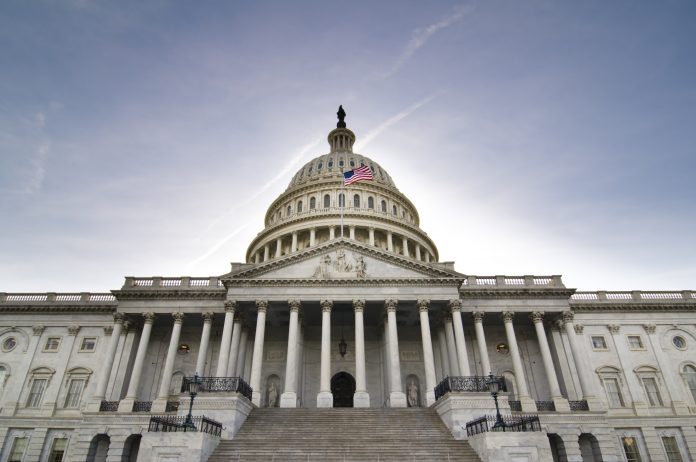
Comprising more than 83 million Americans, Millennials are the largest generation in the nation’s history. In 2016 they surpassed both Generation Xers and Baby Boomers to become the largest segment of the U.S. labor force.
The beliefs of those born between 1981 and 1996 regarding capitalism and their susceptibility to climate fearmongering have shocked the system. Their transition into adult consumers, employees, and key suburban voting blocs (aka “stakeholders”) have driven shifts in the way policymakers, Wall Street, and the crude oil and natural gas industry behave.
That Marxist U.S. Senator Bernie Sanders can lead the Democrat field to challenge U.S. President Donald J. Trump is evidence the nation is at a crossroads.
Shale CEOs, their boards of directors and the trade organizations representing them soon may face fresh public policy choices based on these demographics and perhaps a new political paradigm.
Among Millennials who self-identify as Republicans, a majority say the federal government is doing too little to reduce the effects of climate change. Among Democrats, a February 2020 Pew Research Center poll pegged the environment as the top priority beating out the economy, education and health care. Separate polling, meanwhile, shows taxpayers don’t want to pay $10 more per month to address climate change.
The laws of physics, chemistry and economics be damned, Millennials and older climate radicals want it all, but don’t want to pay for it.
In July 2018, House Republicans rejected the notion of carbon taxes as detrimental to the economy. Less than one year later, ExxonMobil, BP, RoyalDutchShell, Total, Chevron and Eni released a joint statement calling for “economically meaningful” carbon pricing regimes. BP has committed to be carbon neutral by 2050. Supermajors today are expanding Permian operations as heavily leveraged and weakened independent producers, (which traditionally have opposed carbon taxes) cut or disappear.
Every nationally relevant Democrat opposes domestic oil and gas production. Democrats from oil producing states have been betrayed by their Party which rejects hydrocarbons as beneficial to human life and both national and economic security. Democrat leaders now threaten jail for petroleum executives and boast of sending tens of thousands of oil field workers to the unemployment line in the name of climate.
This is not winning!
Someday the Electoral College will again put a Democrat in the White House.
Today, 37 states have set either renewable portfolio standards or renewable energy goals. Local leaders are following with green-power pledges of their own without the ability to deliver or any true accountability.
Every energy industry trade organization in Washington, D.C., is thinking through the carbon price calculus as they strategize on how best to provide business certainty for their members. Some traditional opponents of a carbon tax have flipped and are willing to say so behind closed doors. They talk of “regulatory snapback” and “energy transition.” Shale producers that embraced 45Q tax credits have (wittingly or not) already priced carbon within the U.S. tax code! To satisfy investors and activists, most publicly traded crude oil and natural gas producers have embraced ESG reporting. A growing number are adopting climate risk reporting mechanisms. What signals are policymakers to believe?
In mid-February, U.S. House Republican Leader Kevin McCarthy, R-Calif., and a geographically diverse seven-member work group unveiled the first tranche of Republican climate bills they hope will help serve as shield and lance for GOP candidates as Democrats ratchet up their hydrocarbons attack.
The effort was immediately questioned by members of the conservative House Freedom Caucus and Republican Study Group and blasted by the Club for Growth and Competitive Enterprise Institute (which deserve much credit for shaping early Trump policies to unleash the economy and embrace U.S. energy dominance.)
Democrats scoffed.
The McCarthy team proposed four bills to:
- boost and make permanent the Section 45Q tax credit for carbon capture, use and storage,
- support research, development and commercialization of carbon capture technologies including direct air capture and measures deployed for natural gas power generation,
- commit the U.S. to participate in the global initiative to plant one trillion trees by 2030.
The most controversial aspect of the broader McCarthy effort is that it seeks to embrace liberal dogma on climate change and redirect that force into America-First initiatives to appeal to traditional Republican and Independent voters – judo. That it dovetails with Trump’s top-line messaging is not coincidental despite White House officials panning McCarthy’s pen-and-pad roll out.
If the McCarthy plan survives its first contact with intraparty constituencies, it will expand to show voters their best chance at meeting global climate goals is not through central planning or border carbon adjustment and tax, but through Republican ideas that promote U.S. oil and natural gas production, domestic manufacturing, infrastructure investments and exportable innovations in power generation and efficiency across every sector of the economy.
The climate debate is about who gets paid and what interest groups and ideology will dictate the future. The former chief of staff for U.S. Rep. Alexandria Ocasio-Cortez, D-N.Y., admitted as much in a 2019 Washington Post profile on him as the architect of the $93 trillion “Green New Deal.”
If the debate were about climate, U.S. Millennials and ENGOs would be doing backflips. U.S. emissions dropped 14 percent from 2005 to 2017 – in great part thanks to U.S. shale producers and the transition to natural gas power generation. The United States now leads the world in cutting greenhouse gas emissions, achieving more absolute ton reductions than the next dozen countries combined. By 2030 the U.S. contribution to global greenhouse gas emissions is expected to fall to 10 percent.
Ten years ago, Americans rejected the bold 2009 U.S. House of Representatives cap-and-trade plan. New Mexico Democrat U.S. Rep. Harry Teague’s vote for the bill killed any chance he had to continue serving Delaware Basin voters. So divisive was the federal government’s climate power grab that Democrat leadership in the U.S. Senate refused even to hear the bill.
In March 2019, 43 Senate Democrats – including those who sponsored it – again side-stepped a chance to vote for the Green New Deal by choosing instead to vote “present” when a non-binding version of the measure was introduced by Republican Leader Mitch McConnell.
McConnell told reporters that he too thinks human activity is impacting the climate, but that solutions lie in American values, capitalism, and innovation, not banning oil and gas production.
If Republicans hold the U.S. Senate in 2021, U.S. Senator John Barrasso, R-Wy., is in line to be chairman of the Committee on Energy and Natural Resources. He currently chairs the Environment and Public Works Committee. As he has for years, Barrasso is making it clear in a series of columns and public statements that taxpayers worldwide are rejecting carbon taxes and choosing innovation. Sound familiar?
Will Republicans unify around America-first innovation to win over Independents and disaffected Democrats who may be concerned about climate, but who don’t want to build solar panels in communist China? (Would that be classified as “retraining” or “re-education?”)
The EIA and the United Nations Intergovernmental Panel on Climate Change project global energy demand (primarily in non-OECD nations) will increase 45 percent from 2019 levels by 2050 with crude oil, natural gas and coal continuing to account for almost 70 percent of the fuel mix.
With Russian natural gas having a 41 percent higher lifecycle emissions impact than U.S. LNG shipped to the same European market, doesn’t it make sense for climate warriors to embrace U.S. shale gas production and export?
If the EU replaced Russian natural gas for electricity production with U.S. natural gas, associated global emissions would fall by 72 million metric tons annually – just 6 million metric tons short of self-imposed reduction targets necessary to reach 2030 EU goals.
The difference becomes even more dramatic when one considers lifecycle emissions of Venezuelan heavy sour and Wyoming light sweet crude. Why isn’t it maddening to climate warriors that New York’s virtue signaling on pipeline infrastructure results in higher GHG emissions from the import of dirtier Russian natural gas?
Socialists have used climate fearmongering as one of several tools to seize control of a once-great political party. Millennial stakeholders are demanding action on climate. A besieged petroleum industry and power suppliers nationwide are searching for a way through this storm. Heartland lawmakers are getting mixed signals from the industry.
Before dismissing calls for Republican ideas that embrace America-first innovations on climate change, the industry should consider the alternative.
Brook A. Simmons is president of Territory & Commonwealth, a boutique Capitol Hill consulting and advocacy firm for U.S. crude oil and natural producers and their stakeholders nationwide.














